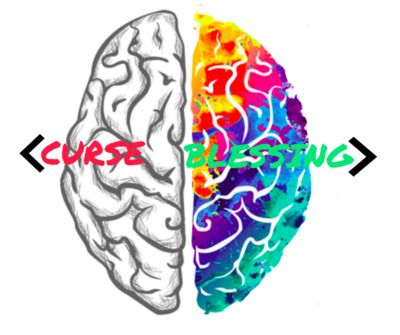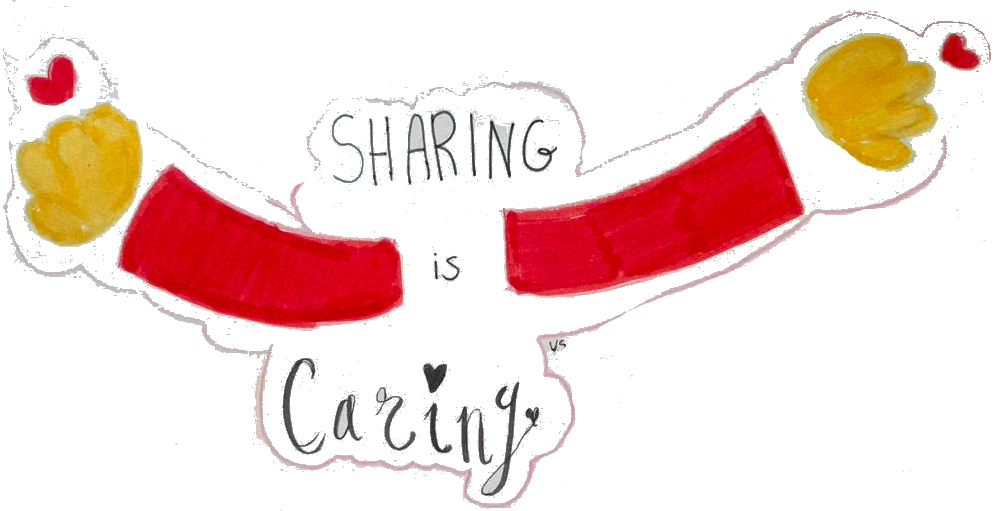AI
AI - A CURSE OR BLESSING

The debate is ongoing, and it reflects a healthy society where we accept the logical thinking of the majority. This has occurred with every new invention that is disruptive in nature, both to society and to human beings.
My aim here is to delve into the dichotomy of AI, exploring its potential as both a curse and a blessing for society. So, let's continue...
Why is it a curse?
-
Privacy Violation: It has the potential to misuse personal and sensitive information, compromising our privacy. Personal data could be stolen and exploited for malicious purposes such as cheating, threats, blackmail, or manipulating people's emotions. Every movement and action of individuals can be tracked and subsequently misused.
-
Work Replacement: There is a prevailing fear that AI-based automation could result in extensive job displacement by robots, machines, and applications, leading to a ripple effect on the economy and society at large. Eventually, it can affect individual human beings. Additionally, the true content creators might find themselves deprived of due credit.
-
Fake Information: AI possesses immense potential to manipulate various forms of data, including images, videos, and audio. It can generate and spread partially or entirely false information, with the capability to destabilize not only individual minds but also society, governments, and even entire states. Societies lacking awareness are particularly vulnerable to such forms of manipulation and victimization.
-
Bias & Unfair Advantage: There exists a potential for bias in AI systems, influenced by the training data they are exposed to. This bias can inadvertently provide unfair advantages to individuals, organizations, societies, or even entire states, leading to discriminatory outcomes. Furthermore, the lack of transparency in underlying algorithms or the implementation of AI may result in widespread distrust within the AI ecosystem as a whole.
-
Centralization of Power: A scenario could arise wherein an individual, organization, or state gains access to highly sophisticated AI applications. These could then be employed for centralized decision-making and managing decentralized responsibilities.
-
Ethical Dilemma: Are we morally comfortable coexisting with machines possessing human-level cognition and decision-making capabilities? Can we truly trust machine-made decisions in matters of life and death? Aren't we going to miss the human touch?
Why is it a blessing?
-
Beyond Human Limitations: AI fulfills its role in areas where human limitations exist, such as analyzing, categorizing, and classifying vast datasets with speed and precision, making data-driven decisions, detecting diseases early (e.g., cancer), achieving heightened accuracy, thwarting digital threats (like isolating spam emails), achieving greater throughput and productivity, and tirelessly monitoring and operating flawlessly. There are numerous tasks where AI excels beyond human capabilities.
-
Be Creative Against Repetitive: It enables us to channel our energy into greater creativity instead of investing our valuable time and effort into repetitive tasks. AI offers the chance to simplify processes, save time, and make things easier, allowing us to explore the world, unwind on the beach, or cherish moments with family or friends.
-
Personalized Goods & Services: AI applications can be customized to cater to individuals, offering specific goods and services based on their unique needs and requirements. This customization leads to elevated customer satisfaction. Additionally, AI paves the way for a plethora of novel goods and services, exemplified by innovations like Alexa and artificial limbs.
-
Climate Change & Disaster management: Sophisticated AI-powered sensors and systems play a crucial role in monitoring and managing environmental changes, enhancing weather forecasting, supporting conservation initiatives, and contributing to climate change mitigation. AI's involvement in disaster response includes predicting natural disasters, resource allocation, and relief efforts. Notable ongoing endeavors in this field include FEMA's Risk MAP Program, IBM's PAIRS, NASA's Disasters Program, Qatar's Artificial Intelligence for Disaster Response (AIDR), and DisasterAWARE.
-
A Boost for Multiple Industries: AI is making its mark across diverse sectors such as Healthcare, Education, Research, Retail, BFSI (Banking, Financial Services, and Insurance), Aviation, and Transportation. It aids in intricate surgeries, accelerates drug development research, improves education accessibility, facilitates virtual trials in e-commerce, surveillance for money laundering, detects insurance fraud, and enables predictive maintenance. These examples highlight how AI benefits different industries and ultimately benefits humanity.
-
Security & Safety: AI is anticipated to play a role in crime prevention and within the criminal justice system. It can expedite the processing of crime data, assess flight risks of prisoners, and even predict and prevent terrorist attacks. Certain regions are already employing online platforms to identify and respond to illegal and inappropriate online activities. Additionally, the widespread use of robots is advisable in perilous and unsafe work environments to safeguard human lives.
Balancing Act:
-
Apprehension often precedes reality: Every new disruptive invention triggers initial concerns before it becomes embraced and integrated into society. While AI is expected to reduce certain tasks performed by humans, it will also create new job opportunities. There's a sensationalized notion that it might even replace its own creators, such as IT Engineers. I've personally used ChatGPT for coding and can confirm that it's far from taking over the role of an IT engineer. It occasionally provides incorrect or inadequate information, although it's evolving continually. However, reaching a mature stage will take considerable time. Currently, it serves as an assistant to IT developers, enhancing their productivity. Consequently, the demand for programmers might decrease in the future. Yet, we're already facing a shortage of highly skilled programmers, compounded by a decreasing global working-age population. This natural supply-demand balance will adjust itself.
However, there will always be value and demand for human-generated applications, content, articles, and art. Just as we continue to use bamboo or plant-made fruit baskets despite the dominance of plastic. Rough estimates suggest that AI can save up to 40% of time and effort compared to traditional methods.
-
Transformation: Robots, machines, and automation will undoubtedly compel individuals to transition to different types of work. However, isn't this simply a part of the natural cycle? In my childhood, plowing was accomplished with the assistance of oxen or buffalo in days. Nowadays, tractors complete the task within minutes. Did those people not adapt? They not only adapted but also improved their lifestyles with less labor-intensive tasks. Continuous change (approximately 330 billion cells are replaced daily in our bodies) or transformation is a universal truth that everyone must undergo to remain relevant in the 'survival of the fittest.' world This process also offers the opportunity to reduce working hours, allowing for more quality time in other pursuits. Successful transformation requires just a well-structured strategy and planned transition.
-
Guardrails & Controls: In the face of other concerns, the notion of 'using the poison itself to neutralize the effect of another poison' is apt. AI itself can play a pivotal role in addressing issues like privacy violations, countering fake information, mitigating bias, and maintaining checks and balances of power. The most crucial and time-sensitive task is establishing comprehensive guidelines, principles, policies, procedures, regulations, guardrails, and controls to prevent AI from spiraling out of control. Thanks to the EU for spearheading this crucial initiative!
-
New Opportunities: As the saying goes, "When God Shuts One Door, He Opens Another." Just consider the doors that AI has opened: AI-based photo editing, video editing, skin analysis, disease detection, content creation, chatbots, supply chain management, marketing, medical equipment, data management, IoT, collaboration tools, personalization, intelligent process automation, recruitment processes, butler services, cleaning services, voice and image-based products and services, reporting, security devices and services, distance learning, farm management, machine maintenance, business analysis, retail operations, customer support, home automation devices, fraud detection, financial planning and forecasting, project management, threat prevention, self-driving vehicles, disaster management, weather forecasting, energy management, waste management, transportation, crime prevention, justice systems, drug discovery, and many more..
-
User Awareness: Ensuring user awareness is paramount, particularly regarding potential misinformation and potential exploitation due to user ignorance or naivety. It's vital that users comprehend the ramifications of malicious intentions from certain actors. Education should cover a range of AI tools, their capabilities, the potential for misuse, and the consequences of such misuse. Establishing a non-profit program for this purpose could prove beneficial. The voices of users or victims should be acknowledged and addressed by relevant authorities, leading to appropriate measures being taken.
-
Collective Responsibility: Maintaining a harmonious equilibrium between the threats and opportunities of AI is a joint responsibility shared by creators, users, and regulators. Creators must act as ethical and transparent AI application developers, users should be well-informed and vigilant, while regulators need to provide timely and comprehensive regulatory frameworks, alongside active enforcement and monitoring of those regulations.
Conclusion:
This debate will persist until AI becomes the new norm across all aspects of humanity. Just as ”what we feel is an opinion, and what we view is a perspective, not a fact,” it's important to view AI with a positive perspective and to embrace it with careful arms.
Throughout history, disruptive innovations and inventions like wheels, electricity, TV, the internet, atomic energy, cellphones, and more have brought initial discomfort to society.
Ultimately, whether AI is a curse or a blessing hinges on our use or misuse? Let us commit to harness its potential and make it a blessing for all of humanity. Amen!
Please share your valuable comments!




